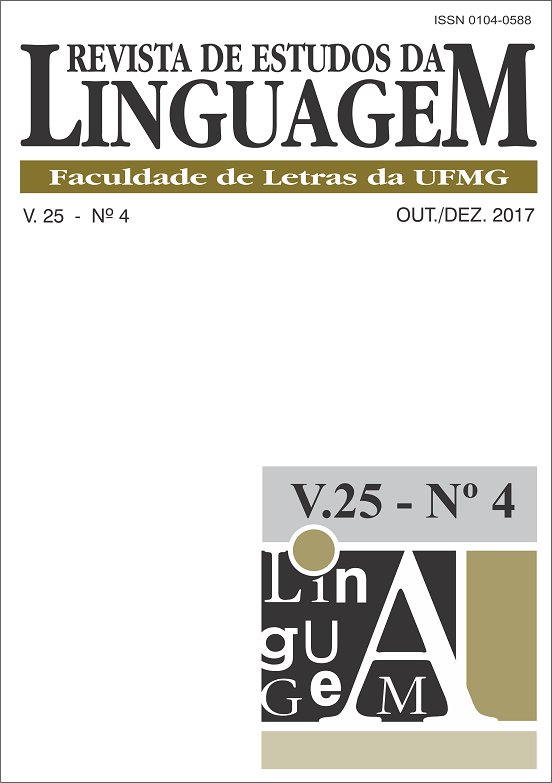Análise comparativa da argumentação no discurso prévio à campanha eleitoral de Aécio Neves e Dilma Rousseff
DOI:
https://doi.org/10.17851/2237-2083.25.4.2227-2256Palavras-chave:
Discourse Analysis, politicians aspects, Semiolinguistics.Resumo
Resumo: No contexto atual, o discurso político volta-se para a busca de uma troca social visando à demonstração da capacidade do político de dizer e fazer. Para isso, o político engaja-se num projeto de construção da imagem de si, e nota-se um grande trabalho por parte dele para fazer reconhecer-se socialmente por meio de um ethos de honestidade e de credibilidade relacionado ao empreendedorismo, ao trabalho e ao sucesso. Com o intuito de realizar um estudo comparativo da argumentação e da busca pelo ethos nos discursos prévios à campanha eleitoral de Aécio Neves e de Dilma Rousseff no ano de 2014, esta pesquisa propõe compreender como a imagem de si mesmo se projeta no discurso político durante o processo de enunciação e permite a coconstrução de uma identidade por meio do discurso. Este artigo se baseia na Teoria Semiolinguística de Charaudeau (2004, 2005, 2006, 2012a, 2012b) por meio dos Modos de Organização do Discurso e suas concepções sobre o discurso político. Busca-se, dessa maneira, a partir de artigos de Aécio Neves publicados no portal Folha e entrevistas de Dilma Rousseff concedidas ao programa Café com a Presidenta, disponíveis on-line, analisar a estruturação do processo de semiotização da linguagem, verificando-se as estratégias adotadas para a constituição do ethos argumentativo vinculado aos imaginários sociodiscursivos associados aos futuros candidatos. Este estudo pretende, assim, elucidar algumas questões que envolvem o discurso político, como os espaços de estratégias e de restrições do contrato de comunicação e os papéis sociais dos participantes dessa forma particular de enunciação.
Palavras-chave: Análise do Discurso; aspectos políticos; Semiolinguística.
Abstract: In the present context, the political discourse turns to the search for a social change aimed at demonstrating the politician’s ability to say and do. For this, the politician engages in a project of construction of the image of itself, and noticed a big job to recognize up socially through an ethos of honesty and credibility related to entrepreneurship, work and success. In order to conduct a comparative study of argumentation and the search for ethos in the previous speech to the election campaign Aecio Neves and Dilma Rousseff in 2014, this research aims to understand how the image of himself projects in political discourse during the enunciation process and allows the co-construction of an identity through discourse. This article is based on Semiolinguistics Theory Charaudeau (2004, 2005, 2006, 2012a, 2012b) through the Organization Modes of Discourse and his views on the political discourse. Seeks, in this way, from Aécio Neves articles on the portal Folha and interviews Dilma Rousseff granted Café com a Presidenta program, available online, analyze the structure of language semiotization process, checking the strategies adopted to the constitution of the argumentative ethos linked to sociodiscursivos imaginary associated with future candidates. It is intended, therefore, to elucidate some issues involving the political discourse, as the spaces of strategies and communication contract restrictions and social roles of the participants of this particular form of enunciation.
Keywords: Discourse Analysis; politicians aspects; Semiolinguistics.





